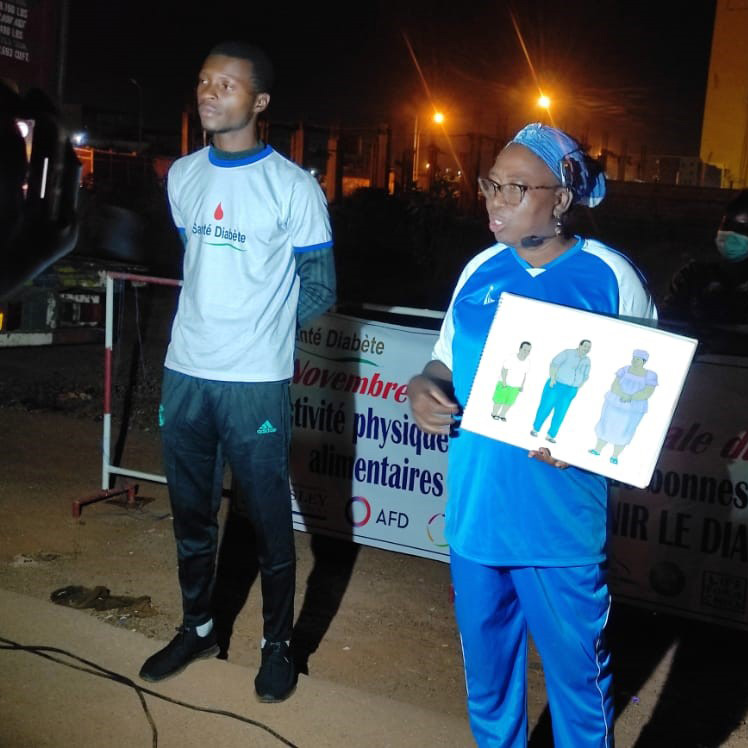World Diabetes Foundation, SolidarMed
Zimbabwean men unite to advocate for diabetes care
30 Oct 2024
World Health Organization | 06 Feb 2023
Building health literacy responsive services, systems and organizations accommodates diverse cultures and traditions, health literacy strengths, individual needs and preferences. Emphasizing social practices over individual behavioural change, health literacy development supports community-based activities that bring sustainable improvements in health and equity.
In Mali in northwest Africa, preventing and managing diabetes is challenging for individuals, communities, and healthcare providers. Across the country’s vast rural areas and dense urban centres, access to essential diabetes medication and care, including insulin and blood glucose monitoring, is often limited. High illiteracy rates and multiple local languages additionally complicate the dissemination of important public health and prevention messaging.
“In communities in the capital of Bamako, in the city of Ségou and the rural area of Markal, we met people that had been living with undiagnosed type 1 or 2 diabetes for several years,” recounts Stéphane Besançon, director of the international nongovernmental organization Santé Diabète. “A health literacy questionnaire in the main local language Bambara confirmed that low health literacy among patients, in the community and with health professionals is a major driver for poor diabetes management and missing prevention in Mali,” he adds.

From 2019, Santé Diabète actioned the insights from their survey in a dedicated health literacy campaign. Through a peer-education programme, they trained community leaders and healthcare workers in key elements of diabetes prevention and care. This included community information sessions on mitigating risk factors such as overweight or hypertension in multiple languages, recognizing the typical signs of diabetes, managing the condition, and seeking the right medication and care.
Stéphane and his team then used a second health literacy survey to evaluate whether their intervention had a positive impact and found many peoples’ knowledge and confidence had taken a leap forward. “People had a much better understanding of the risk factors and symptoms favoring diabetes, found new support in their community, and felt more confident when and where to seek care with a health professional,” Stéphane adds.
Health literacy describes the knowledge and competencies, daily activities and social interactions of people and communities to access, understand, appraise, remember and use health information, maintain good health, or seek care for themselves and those around them.
To curb the global epidemic of noncommunicable diseases (NCDs) such as cancer, diabetes, chronic respiratory disease and heart disease, health literacy is a decisive success factor. Health literacy responsive systems are crucial to reduce the modifiable risk factors and address the complex mixture of economic, social, commercial and environmental determinants of NCDs.
Lower- and middle-income countries carry the greatest NCD-burden, accounting for some 86% of premature deaths related to NCDs. In these settings, developing health literacy with communities and vulnerable groups holds the key to maximizing global health and equity impact. Looking through a health literacy-lens facilitates locally relevant and effective health programmes, a strong focus on equality and equity in policy and practice, and the meaningful engagement and co-design with people with lived experiences.
A newly released WHO report on Health literacy development for the prevention and control of noncommunicable diseases features guidance and additional case studies from national demonstration projects.
Discover additional case studies from demonstration projects in 16 countries in Vol. 4. of the report on Health literacy development for the prevention and control of noncommunicable diseases.